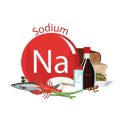Understanding the Benefits of Natural Cleaning
Switching to natural cleaning products is more than just a passing trend—it’s an investment in your family’s wellbeing and the environment. Conventional household cleaners often contain harsh chemicals like ammonia, chlorine, and artificial fragrances, which can contribute to indoor air pollution and trigger allergies or respiratory issues, particularly among children and vulnerable adults. In contrast, natural cleaning solutions—such as those based on vinegar, bicarbonate of soda (baking soda), and lemon—are gentle yet effective, minimising exposure to potentially harmful substances.
From a broader perspective, every product we use at home eventually makes its way into the UK’s water systems. Chemical-laden cleaners can be difficult to remove during water treatment processes, contributing to long-term pollution of rivers and streams and harming local wildlife. By choosing eco-friendly alternatives, British households help protect these vital ecosystems while reducing their own environmental footprint.
Furthermore, natural cleaning supports the growing movement towards sustainability in the UK. It aligns with government initiatives encouraging greener choices and waste reduction. By making this transition, you’re not only safeguarding your household but also contributing positively to the health of communities nationwide.
Essential Eco-Friendly Cleaning Ingredients
Transitioning to natural cleaning methods begins with understanding which eco-friendly ingredients are both effective and easily sourced in the UK. Many British households can make a significant impact simply by switching to staple items that are widely available at local supermarkets, high street shops, and even budget retailers. Below is a guide to core ingredients you should keep on hand for a greener cleaning routine.
Key Natural Products Readily Available in Britain
| Ingredient | Typical Use | Where to Buy | Sustainability Note |
|---|---|---|---|
| White Vinegar | Descaling kettles, cleaning glass, surface disinfectant | Tesco, Sainsbury’s, Aldi, Lidl, Wilko | Biodegradable; comes in recyclable bottles |
| Bicarbonate of Soda (Baking Soda) | Odour neutraliser, stain remover, gentle abrasive scrub | Most supermarkets, Boots, Poundland | Non-toxic and safe for septic tanks |
| Lemon Juice | Limescale removal, deodorising, mild bleaching agent | Fresh from grocers or bottled in supermarkets | Naturally derived and compostable waste |
| Castile Soap (Olive Oil Soap) | Multipurpose cleaner for floors, bathrooms, and dishes | Health food shops, Holland & Barrett, online stores | Plant-based and biodegradable formulae available |
| Essential Oils (e.g. Tea Tree, Lavender) | Add fragrance and antibacterial properties to DIY sprays and cleaners | Boots, Holland & Barrett, independent chemists | Sourced from plants; use sparingly for best sustainability practice |
The Benefits of Local Sourcing for Eco-Friendly Cleaning
By choosing ingredients that are widely stocked across the UK’s high streets and supermarkets, you not only reduce your carbon footprint but also support local supply chains. White vinegar and bicarbonate of soda are particularly cost-effective and versatile. Essential oils such as tea tree or lavender—both familiar scents in British homes—can be used sparingly to provide additional antimicrobial power and a pleasant aroma without resorting to synthetic fragrances.
Sustainable Shopping Tips for British Households
Look out for products packaged in recyclable materials or available in bulk to further minimise environmental impact. Where possible, opt for UK-produced brands to reduce transportation emissions. These everyday staples are key steps towards a more sustainable home environment while maintaining high standards of cleanliness expected in British households.

3. DIY Natural Cleaning Solutions for Every Room
Transitioning to natural cleaning doesn’t mean sacrificing cleanliness or effectiveness—especially when you use ingredients commonly found in British households. Here’s how you can craft your own eco-friendly cleaners for every room, ensuring both a spotless home and a reduced environmental impact.
The Kitchen: Grease-Busting Power
For worktops, hobs, and sinks, mix equal parts distilled white vinegar and water in a spray bottle. Add a few drops of lemon essential oil for antibacterial properties and a fresh scent. For tougher grease on the cooker or extractor fan, sprinkle bicarbonate of soda directly onto the surface, then spritz with your vinegar solution. Allow it to fizz, scrub lightly, and wipe clean with a damp cloth.
Recipe: All-Purpose Kitchen Spray
- 250ml distilled white vinegar
- 250ml water
- 10 drops lemon or tea tree essential oil (optional)
Combine ingredients in a reusable spray bottle and shake well before each use.
The Bathroom: Limescale & Mould Control
British bathrooms often face limescale build-up due to hard water. To tackle this, apply neat distilled white vinegar to taps and showerheads; leave for 30 minutes before scrubbing. For the loo, pour 100g bicarbonate of soda into the bowl followed by 120ml vinegar. Let it fizz for 10 minutes before brushing and flushing.
Recipe: Shower & Tile Cleaner
- 200ml distilled white vinegar
- 200ml water
- 1 tablespoon bicarbonate of soda
Mix vinegar and water in a spray bottle; sprinkle bicarb on tiles first, spray over with solution, leave for 5-10 minutes, then scrub with a brush.
The Living Room: Dust & Surface Care
Create an anti-static dusting spray by mixing 2 tablespoons olive oil with 200ml water and 10 drops lavender essential oil. Lightly mist onto a soft cloth and wipe surfaces such as wooden furniture or skirting boards. For glass or mirrors, blend equal parts vinegar and water for streak-free results.
Recipe: Natural Wood Polish
- 2 tablespoons olive oil
- 2 tablespoons lemon juice
Mix together and apply sparingly with a soft cloth to revive dull wood finishes.
Sourcing Ingredients Locally
You can find most ingredients at British supermarkets or high street shops like Boots or Holland & Barrett. Choose reusable spray bottles and cleaning cloths made from recycled materials to further reduce waste.
By using these simple recipes tailored for British homes—from the kitchen right through to the loo—you’ll maintain a sparkling living space while minimising exposure to harsh chemicals and supporting sustainable practices.
4. Eco-Conscious Cleaning Tools and Reusables
Transitioning to natural cleaning is not just about what’s in your sprays and solutions—it’s also about the tools you use every day. Many conventional cleaning products, such as disposable wipes, plastic brushes, and synthetic sponges, are resource-intensive to produce and end up in landfill. By choosing eco-conscious alternatives, British households can significantly reduce their environmental impact while maintaining a sparkling clean home.
Sustainable Cleaning Tool Alternatives
Making the switch to reusable and sustainably sourced cleaning tools is a practical step towards an eco-friendly lifestyle. Here are some sustainable options commonly available across the UK:
| Conventional Product | Sustainable Alternative | Key Benefit |
|---|---|---|
| Disposable Wipes | Reusable Microfibre Cloths | Long-lasting and washable, reducing waste |
| Plastic Scrubbing Brushes | Bamboo or Wooden Brushes | Biodegradable handles and natural bristles |
| Synthetic Sponges | Locally Sourced Natural Sponges | Compostable and gentle on surfaces |
| Paper Towels | Cotton or Linen Rags | Repurposed from old textiles, minimising landfill contribution |
Why Choose Local and Natural Materials?
Selecting products made from locally sourced materials supports British businesses, reduces carbon emissions from transportation, and often guarantees higher production standards. Look for cleaning tools made from FSC-certified wood or UK-grown plant fibres. Not only do these choices benefit the environment, but they also promote local economic resilience.
Caring for Your Reusables
To maximise the lifespan of your eco-friendly cleaning kit, wash reusable cloths at 30°C with eco-friendly detergent and air dry whenever possible. Wooden brushes should be rinsed and dried thoroughly after use to prevent mould. Natural sponges can be sanitised by soaking in a vinegar solution weekly.
A Practical Tip for British Households
Create a designated basket under the sink for storing clean reusables and another for those ready to be washed. This simple system makes it easy for everyone in the household to adopt greener habits without extra fuss.
5. Managing Common British Cleaning Challenges the Natural Way
Transitioning to natural cleaning methods in a British home means tackling some uniquely local challenges—namely, limescale, mould, and damp. These issues are particularly prevalent due to the UK’s hard water areas and famously humid climate. Fortunately, effective eco-friendly solutions exist that are both gentle on the environment and tough on household problems.
Limescale: Hard Waters Unwanted Gift
Limescale build-up is a frequent nuisance in kettles, taps, and bathroom fixtures across the UK. A simple yet effective remedy involves using white vinegar. Soak affected items in a solution of equal parts white vinegar and water for several hours, then scrub with an old toothbrush or non-scratch pad. For stubborn deposits, heat the vinegar beforehand or leave overnight for maximum impact.
Mould: Combatting Persistent Dampness
Mould thrives in Britain’s damp conditions, especially in bathrooms and around windows. To address minor outbreaks naturally, mix one part distilled white vinegar with one part water in a spray bottle. Apply directly to the mouldy area, leave for at least an hour, then wipe clean. For added anti-fungal power, add a few drops of tea tree oil or eucalyptus oil—both have natural antimicrobial properties proven by research.
Damp: Preventing Musty Odours and Health Risks
Reducing damp is essential for maintaining healthy air quality and preventing mould regrowth. Keep rooms well-ventilated by opening windows regularly—even just for 10 minutes a day—and use salt bowls or bicarbonate of soda to absorb excess moisture in problem areas like under sinks or behind furniture. Regularly wipe down condensation-prone surfaces with a cloth dampened with a mixture of water and lemon juice; this not only removes moisture but also leaves behind a fresh scent.
By adopting these natural solutions tailored to common British issues, households can significantly reduce their reliance on harsh chemicals while maintaining a clean, healthy living environment. Transitioning your home to eco-friendly cleaning isn’t just good for the planet—it’s also practical for everyday British life.
6. Building Sustainable Habits and Getting the Family Involved
Embedding eco-friendly cleaning habits into your British household’s daily routine requires practical strategies and collective effort. Start by designating specific roles to each family member, making sustainability a shared responsibility. For example, children can be in charge of refilling reusable spray bottles or sorting recyclable packaging, while adults might prepare natural cleaning solutions using staples like vinegar and bicarbonate of soda.
Integrating Green Cleaning Into Everyday Life
Consistency is key. Schedule regular cleaning sessions using a family rota and incorporate reminders into your weekly planner or smartphone calendar. Consider swapping out single-use wipes for washable microfibre cloths and use labelled glass jars for homemade cleaners—these small swaps can quickly become second nature.
Encouraging Engagement Through Education
Discuss the benefits of natural cleaning products with your family, highlighting both health advantages and environmental impacts relevant to life in the UK, such as reducing plastic waste or supporting local British suppliers. Share interesting facts about how certain ingredients, like lemon juice or baking soda, work to clean effectively without harsh chemicals.
Rewarding Sustainable Choices
To motivate everyone, set up an eco-points system where family members earn rewards for sustainable actions, such as reusing containers or remembering to compost food waste. Celebrate milestones together—for instance, a month of chemical-free cleaning could be marked by a home-baked treat or an outing to a local nature reserve.
Ultimately, transitioning to natural cleaning is most successful when it becomes a collaborative effort rooted in everyday habits. By normalising these practices within your British household and making them enjoyable, you’ll create lasting change that benefits both your family’s wellbeing and the environment.


